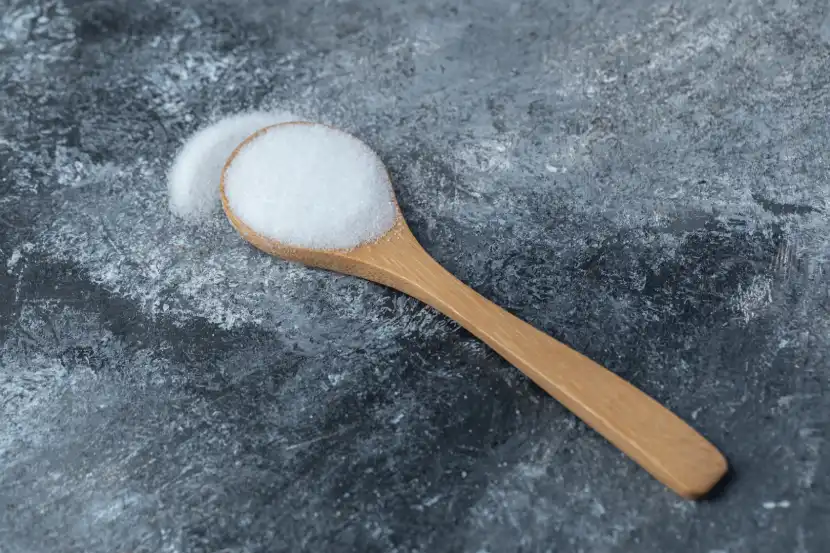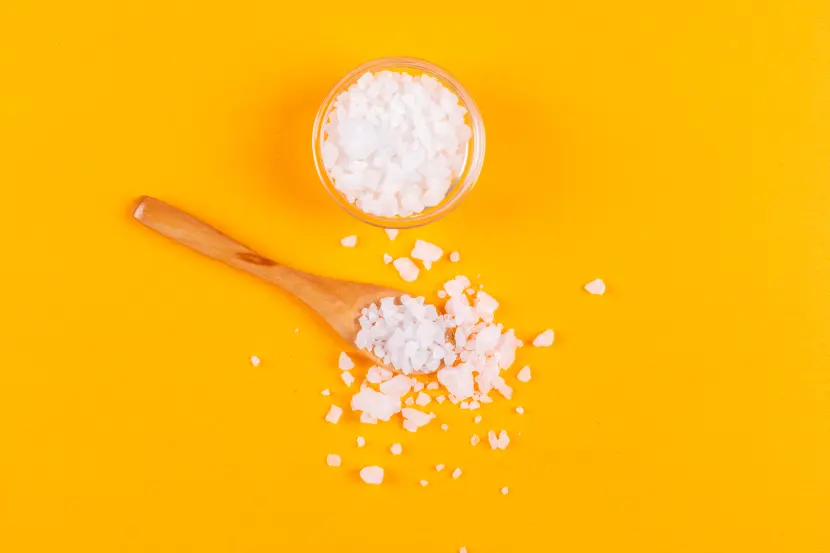What is Potassium Chloride Powder?
Chemical Properties and Composition
Potassium chloride powder is a vital mineral compound consisting of potassium and chloride ions. The chemical formula KCl represents this crystalline substance, which plays a crucial role in various biological and industrial applications. The molar mass of potassium chloride is approximately 74.55 g/mol, making it a relatively lightweight compound. When examining potassium chloride powder, it’s important to note that it forms through the natural reaction between potassium metal and chlorine gas, producing potassium chloride in its pure form.
Physical Characteristics and Forms
In its powder form, potassium chloride appears as white or colorless crystalline granules. The compound exhibits a characteristic melting point of 770°C (1,418°F), demonstrating its stability at room temperature. Potassium chloride powder readily dissolves in water, making it suitable for various applications in both medical and industrial settings.
The Science Behind Potassium Chloride
Chemical Reactivity and Stability
The reactivity of potassium chloride is an important consideration for both manufacturers and users. While potassium chloride powder is generally stable under normal conditions, it can participate in various chemical reactions, particularly in aqueous solutions. Understanding what is the reactivity of potassium chloride helps in proper handling and storage of the compound.
Molar Mass and Basic Properties
The molar mass potassium chloride possesses influences its behavior in solutions and its dosing in medical applications. This property is particularly important when calculating precise measurements for pharmaceutical preparations or industrial applications. The compound’s high solubility in water (approximately 34.2g/100mL at 20°C) makes it ideal for various formulations.
Melting Point and Physical States
The potassium chloride melting point is a critical parameter that indicates its thermal stability. This property is particularly relevant in industrial processes where temperature control is essential. The compound remains stable through various physical states, maintaining its chemical integrity under normal storage conditions.
Production and Manufacturing Process
Industrial Production Methods
Commercial production of potassium chloride powder involves several refined processes to ensure purity and consistency. The manufacturing process must meet strict quality standards, particularly for pharmaceutical-grade products. Modern production methods focus on minimizing impurities while maximizing yield.
Quality Control Standards
Quality control measures for potassium chloride powder production are rigorous, especially for medical-grade products. These standards ensure the safety and efficacy of the final product, whether it’s being used as a pharmaceutical ingredient or as a potassium chloride water softener in industrial applications.
Different Grades and Purity Levels
Different applications require varying grades of potassium chloride powder. Pharmaceutical-grade material must meet strict USP standards, while industrial-grade products may have different specifications. For medical applications, such as injectable potassium chloride or potassium chloride for injection, the highest purity standards are mandatory.
Medical and Pharmaceutical Applications
Extended Release Formulations
Potassium chloride powder serves as the primary ingredient in various extended-release medications. These formulations are carefully designed to provide controlled release of potassium over time, improving patient compliance and reducing gastrointestinal side effects. The most common dosage forms include potassium chloride extended release tablets in strengths of potassium chloride 10 meq er and potassium chloride er 20 meq. These extended-release formulations are particularly beneficial for patients requiring long-term potassium supplementation, as they maintain steady blood levels throughout the day. For instance, potassium chloride extended release 10 meq tablets are often prescribed for mild to moderate potassium deficiency, while the 20 meq strength is typically reserved for more severe cases under close medical supervision.
Injectable Solutions
In hospital settings, injectable potassium chloride plays a crucial role in treating severe potassium deficiency or during specific medical procedures. Potassium chloride for injection requires careful preparation and administration by healthcare professionals. These injectable solutions come in various concentrations and must be diluted appropriately before administration. The preparation of potassium chloride injectable solutions demands strict adherence to sterility protocols and precise concentration calculations to ensure patient safety.
Nursing Considerations and Safety
Potassium chloride nursing considerations encompass a wide range of critical factors. Healthcare providers must carefully monitor patients receiving potassium chloride powder in any form, particularly when administered intravenously. Key considerations include:
- Regular monitoring of serum potassium levels
- Assessment of kidney function and urine output
- Careful evaluation of medication interactions
- Monitoring for signs of hyperkalemia
- Implementation of proper administration protocols
- Documentation of patient response and vital signs
Dietary Supplement Forms and Dosages
Standard Dosage Guidelines
The appropriate dosage of potassium chloride powder supplements varies based on individual needs and medical conditions. For general supplementation, doses typically range from 10 to 20 mEq per day, divided into multiple doses. Healthcare providers often start with lower doses and adjust based on patient response and blood potassium levels. The powder form allows for flexible dosing and can be mixed with liquids for easier administration, though proper measurement is crucial for safety.
Extended Release Options (10 MEQ and 20 MEQ)
Extended-release formulations have revolutionized potassium supplementation. The potassium chloride er 10 meq tablets provide a steady release over 8-10 hours, while potassium chloride er 20 meq formulations are designed for patients requiring higher daily doses. These formulations help minimize the risk of gastrointestinal irritation and improve absorption. It’s worth noting that products like Klor-Con M20 contain the same active ingredient as standard potassium chloride, though they may have specific release characteristics that make them more suitable for certain patients.
Different Brand Comparisons
Various manufacturers produce potassium chloride powder supplements, each with slightly different formulations and release characteristics. When comparing products, it’s essential to consider:
- Release mechanism and duration
- Coating technologies used
- Additional ingredients or fillers
- Cost and availability
- Insurance coverage
- Patient preference and tolerance These factors can significantly impact treatment adherence and outcomes.

Potassium Chloride vs. Alternative Forms
Potassium Chloride vs. Potassium Citrate
The comparison between potassium chloride vs potassium citrate is particularly relevant for patients with specific medical conditions. While both provide essential potassium, they have distinct properties and uses:
Potassium Chloride:
- More commonly used for general potassium supplementation
- Often preferred for treating hypokalemia
- Generally more cost-effective
- May be better absorbed in most cases
Potassium Citrate:
- Better suited for patients with kidney stones
- May help alkalinize urine
- Often better tolerated by some patients
- Can be more expensive
Salt Substitute Applications
Potassium chloride powder serves as an organic potassium chloride salt substitute in many commercial products. These alternatives are particularly beneficial for individuals on sodium-restricted diets. However, users must be aware that:
- The taste may differ slightly from traditional salt
- Proper dosing is essential to prevent excessive potassium intake
- Not all individuals can safely use potassium-based salt substitutes
- Medical consultation is recommended before starting regular use
Bioavailability Comparison
The bioavailability of different potassium formulations varies significantly. Factors affecting absorption include:
- The specific chemical form
- Release mechanism
- Presence of food in the stomach
- Individual patient factors
- Concurrent medications
- Overall health status
Industrial and Commercial Uses
Water Softening Applications
Potassium chloride powder has become increasingly popular as a water softening agent. When used as a potassium chloride water softener, it offers several advantages over traditional sodium-based softeners:
- More environmentally friendly option
- Better for individuals on sodium-restricted diets
- Less harmful to plants when softened water is used for irrigation
- Effectively removes calcium and magnesium ions
- No significant taste alteration in treated water The process involves ion exchange, where potassium ions replace the hardness minerals in water, resulting in softer water without adding sodium to the system. Professional installation and regular maintenance ensure optimal performance of these systems.
Food Industry Applications
In the food industry, potassium chloride powder serves multiple purposes:
- As a salt substitute or salt reducer in processed foods
- For mineral fortification of various food products
- As a stabilizer and thickening agent
- In preservation processes
- As a gelling agent in specific applications Manufacturers must carefully control the amount used to maintain proper taste profiles while achieving desired functional benefits. The compound’s ability to enhance mineral content while reducing sodium levels makes it particularly valuable in developing healthier food options.
Other Industrial Applications
Beyond food and water treatment, potassium chloride powder finds applications in various industrial processes:
- Chemical manufacturing
- Petroleum industry operations
- Textile processing
- Agricultural fertilizers
- Laboratory reagents
- Metal treatment processes Each application requires specific grades and purity levels of potassium chloride powder, with strict quality control measures in place.
Health Benefits and Functions
Role in Electrolyte Balance
Potassium chloride powder plays a crucial role in maintaining proper electrolyte balance in the body. This function is essential for:
- Nerve signal transmission
- Muscle contraction regulation
- Heart rhythm maintenance
- Blood pressure control
- Proper kidney function
- Acid-base balance Understanding these fundamental roles helps explain why maintaining proper potassium levels is crucial for overall health and why potassium chloride supplementation may be necessary in certain conditions.
Cardiovascular Health Support
The impact of potassium chloride on cardiovascular health is significant:
- Helps regulate blood pressure
- Supports proper heart rhythm
- Reduces risk of stroke in some populations
- Assists in managing heart failure symptoms
- Supports overall cardiovascular function Regular monitoring and appropriate supplementation under medical supervision can help maintain optimal cardiovascular health.
Muscle Function Maintenance
Proper muscle function relies heavily on adequate potassium levels:
- Prevents muscle weakness and fatigue
- Reduces risk of muscle cramps
- Supports exercise performance
- Aids in post-workout recovery
- Maintains proper muscle tone Athletes and active individuals may require careful monitoring of their potassium levels, especially during intense training periods or in hot weather conditions.
Safety Profile and Precautions
Potential Side Effects
While generally safe when used as directed, potassium chloride powder supplementation can cause several side effects: Common side effects:
- Gastrointestinal discomfort
- Nausea or vomiting
- Diarrhea
- Abdominal pain
Serious side effects (requiring immediate medical attention):
- Heart palpitations
- Chest pain
- Muscle weakness
- Unusual fatigue
- Signs of hyperkalemia
Healthcare providers should carefully monitor patients for these potential complications, especially when using higher doses or extended-release formulations.

Special Populations and Considerations
Athletes and Active Individuals
Athletes require special consideration when using potassium chloride powder supplementation:
- Higher potassium needs due to increased sweating and muscle activity
- Need for proper timing of supplementation around training
- Importance of balanced electrolyte replacement
- Consideration of other supplements being used
- Monitoring for optimal performance Athletes should work closely with sports medicine professionals to develop appropriate supplementation strategies that account for their unique training demands and competition schedules.
Elderly Population
Older adults may require special attention when using potassium chloride powder:
- Higher risk of drug interactions due to multiple medications
- Altered kidney function affecting potassium processing
- Different absorption rates and therapeutic needs
- Need for regular monitoring of potassium levels
- Consideration of underlying health conditions Healthcare providers should carefully assess the benefits and risks of different formulations, including potassium chloride extended release options, for this population.
Patients with Specific Conditions
Certain medical conditions require specialized approaches to potassium chloride supplementation:
- Kidney disease patients need careful monitoring
- Heart condition patients may require adjusted dosages
- Diabetic patients should consider effects on blood sugar management
- Patients with gastrointestinal disorders may need special formulations
- Those with hypertension need regular blood pressure monitoring
Storage and Stability
Proper Storage Conditions
Maintaining the stability of potassium chloride powder requires proper storage:
- Keep in a cool, dry place away from direct sunlight
- Store in airtight containers to prevent moisture absorption
- Maintain consistent temperature conditions
- Avoid exposure to extreme temperatures
- Keep away from children and pets Following these guidelines helps maintain the product’s efficacy and safety.
Shelf Life Considerations
Understanding shelf life factors is crucial:
- Standard shelf life under proper conditions
- Impact of environmental factors on stability
- Signs of degradation to watch for
- Proper disposal methods
- Importance of checking expiration dates Regular inspection and proper rotation of stock ensure the highest quality and safety.
Environmental Factors
Various environmental factors can affect potassium chloride powder stability:
- Temperature fluctuations
- Humidity levels
- Light exposure
- Air quality
- Storage container materials
Frequently Asked Questions (FAQs)
- What is the difference between regular and extended-release potassium chloride? Extended-release formulations provide slower, more controlled release of the mineral, potentially reducing gastrointestinal side effects.
- Can I use potassium chloride powder as a salt substitute? While it can be used as a salt substitute, it’s important to consult healthcare providers first, especially if you have kidney problems or take certain medications.
- How does potassium chloride compare to other potassium supplements? Potassium chloride powder is generally well-absorbed and cost-effective compared to other forms like potassium citrate.
- What should I do if I miss a dose? Take it as soon as you remember, unless it’s close to your next scheduled dose. Never double up on doses.
- Are there any dietary restrictions while taking potassium chloride? Follow your healthcare provider’s guidance regarding diet, particularly concerning high-potassium foods.
Conclusion
Potassium chloride powder is a versatile compound with essential applications in medical, dietary, and industrial settings. Its proper use requires understanding of appropriate dosing, potential interactions, and safety considerations. While it offers numerous benefits, from treating potassium deficiency to industrial applications, careful attention must be paid to individual needs and circumstances. Always consult healthcare providers before starting supplementation, and maintain regular monitoring when using potassium chloride products.
The success of potassium chloride powder supplementation relies heavily on proper usage, storage, and monitoring. Whether used for medical treatment, dietary supplementation, or industrial applications, understanding its properties and requirements ensures optimal results while maintaining safety. As research continues, new applications and formulations may emerge, potentially offering even more benefits while minimizing risks.



